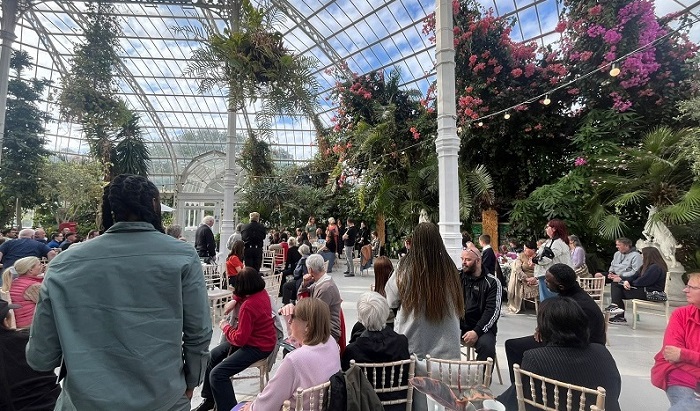Community organising: restoring faith in democracy?
Posted on: 18 June 2024 by Belinda Tyrrell in Blog

With the UK General Election fast approaching, we ask if community organising could help to re-establish trust in our political system?
The 2024 UK General Election takes place at a time when researchers have found that the British public’s trust in politicians is at an all-time low. The National Centre of Social Research found that 45% would ‘almost never’ trust British governments of any party to place the needs of the nation above the interests of their own political party, more than ever before, and that 58% would ‘almost never’ trust politicians of any party in Britain to tell the truth when they are in a tight corner.
These figures make it clear that whatever the outcome of the General Election the relationship between government and citizens requires urgent attention. But what role can community organising play in improving trust?
Last week, along with colleagues from the University of Liverpool, I attended a Citizens UK ‘Weaving Trust’ event. Citizens UK are a national charity who use community organising for social change on the issues that matter to communities. Their work is underpinned by the principle that ‘everyday people have power’ and by bringing people together across their differences, we can identify common ground and achieve change. Notable successes of their campaigns including securing over £2 billion for low paid workers through the Real Living Wage.
They are organised through a series of local chapters, each bringing together local people and organisations to build a better and fairer society. Over the last two years, they have been working to build a Liverpool Citizens chapter, which now has over seventeen members institutions, including faith organisations, universities, schools, NHS organisations, community groups and housing associations.
The aim now is to continue to build the chapter through nurturing relationships with local organisations and listening to the issues that matter to them. This continued listening will inform a series of ‘asks’ to local decision-makers at a future Founding Assembly.
The ‘Weaving Trust‘ event was an opportunity for members of the Liverpool chapter to come together and to hear from Amanda Tattersall, a pioneer of community organising in Australia. She spoke about the recently published Organising Together Across Difference report which reviews an 18-month research action project developing and analysing strategies to strengthen community organising’s ability to respond to widening social division.
During the event we were able to participate in some of the relational experiments featured in the report, including a ‘carousel of conversations‘. Here, participants make an inner and outer circle, they then turn so that they are face-to-face forming a discussion pair. The facilitator will pose questions to participants for discussion, after each question the person on the outside will move two places to form a new pair, enabling a flow of different conversations. More than an icebreaker, these conversations are an opportunity to build trust by sharing experiences, motivations and acknowledging differences.
We were also able to observe a 1-2-1 relational discussion, which is a tool used by Citizens UK to help build relationships between members. 1-2-1 discussions are different to a chat or catch up as the time is dedicated to understanding what has led the person to follow the path which they have taken.
This process privileges listening and curiosity, it allows the participants time to reflect on what matters to them and the change that they would like to see. It also helps to find common ground on issues which matter to the community around which campaigns can be organised.
Listening to the conversation 1-1 was fascinating, it was surprising how much we learnt within ten minutes about the person’s experiences, values, and motivations for doing what they do.
After the event, I reflected on what I had learned. For me, there were three key insights:
- Curiosity – To build relationships and organise effectively, we need to show interest in each other’s experiences and motivations.
- Listening – Resist the urge to jump to actions, provide the space for discussion and reflection.
- Togetherness – Recognising our sameness and differences breaks down barriers, allowing us to find common ground. From which we can organise ourselves into a collective, capable of making change.
At a time when our communities seem more polarised than in recent history, and the political uncertainty of the last Parliament has eroded confidence in our political system. Broad-based community organisation of the type practised by Citizens UK and its local chapters, which holds those in power to account, offers an opportunity to restore trust. By enabling citizens to participate in the democratic process beyond the ballot box and in a collective endeavour to realise change on the issues that really matter in their lives.
Keywords: .